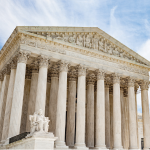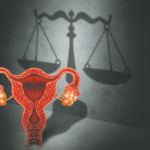WASHINGTON (Reuters)—The U.S. Supreme Court, which delivered major rulings in 2012 and 2015 preserving President Barack Obama’s signature healthcare law, on Tuesday declined to take up a new, long-shot challenge to Obamacare brought by an Iowa artist.
The court turned away an appeal by Matt Sissel, who had asserted that the 2010 Affordable Care Act violated the U.S. Constitution’s requirement that revenue-raising legislation must originate in the House of Representatives, not in the Senate, as the healthcare law did.
The high court left in place a 2014 ruling by the U.S. Court of Appeals for the District of Columbia Circuit upholding a lower court’s dismissal of the lawsuit, which was backed by the Pacific Legal Foundation, a conservative legal group. The suit targeted the law’s “individual mandate” that Americans obtain health insurance or pay a tax penalty.
In a 6-3 ruling last June, the Supreme Court rejected a conservative legal challenge and upheld nationwide tax subsidies crucial to the healthcare law. In 2012, the justices ruled 5-4 that the law’s requirement that Americans obtain insurance or pay a penalty was authorized by the power of Congress to levy taxes.
A three-judge appeals court panel was unanimous in finding that Sissel’s interpretation of the law was at odds with U.S. Supreme Court precedents, including the high court’s ruling in 2012. The court found that the penalty for not obtaining insurance was a form of taxation.
The law was passed by Obama’s fellow Democrats in Congress in 2010 over the unified opposition of Republicans, and conservatives who call the measure a government overreach have fought it since its inception. The landmark law was designed to provide healthcare for millions of uninsured Americans.
Obama this month vetoed legislation passed by the Republican-led Congress that would have dismantled the law.
In the spring, the Supreme Court will hear arguments in a case brought by religious groups seeking an exemption from a provision of the law that requires them to provide contraception coverage in their health insurance policies.
The case is Sissel v. Department of Health and Human Services, U.S. Supreme Court, No. 15-543.

